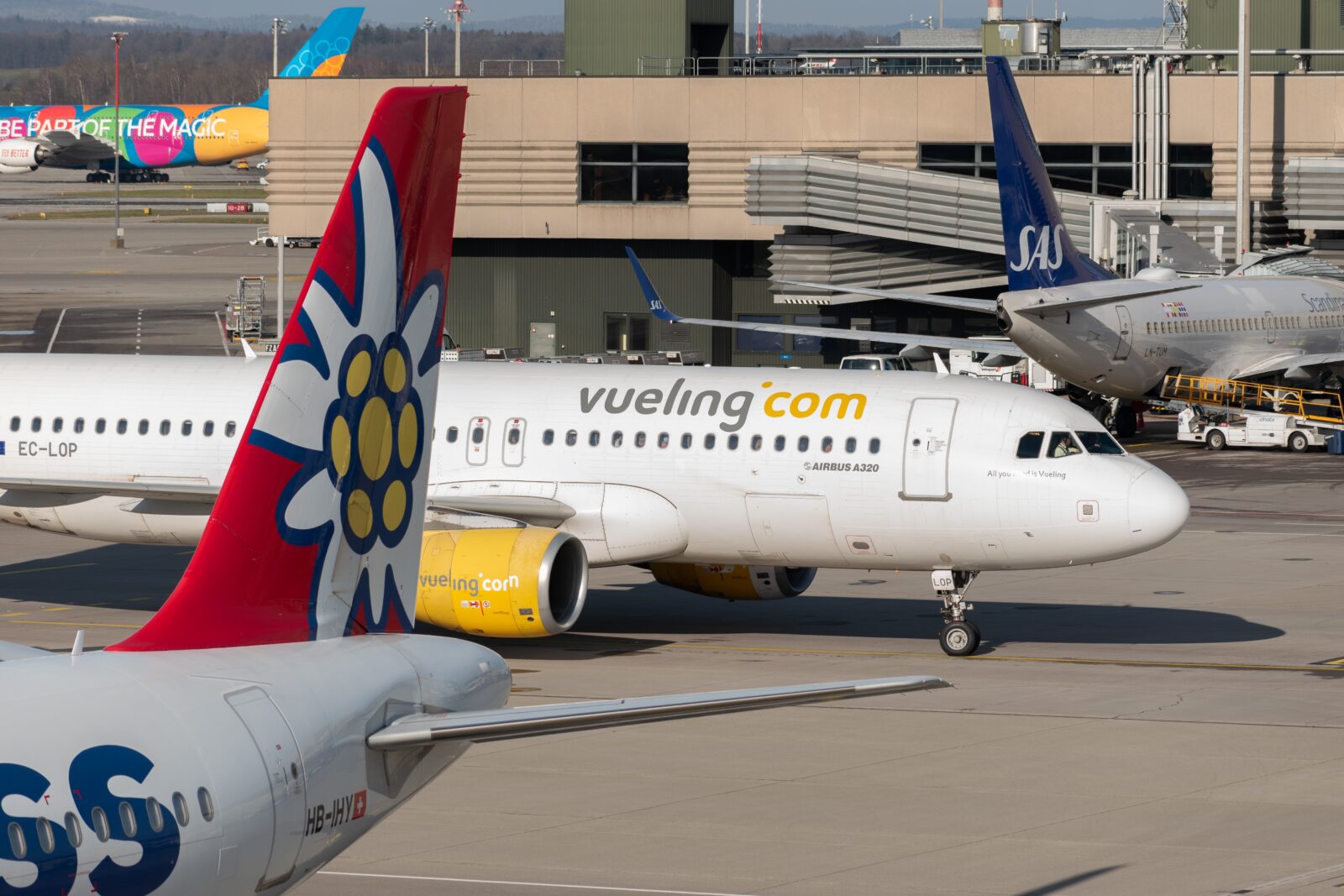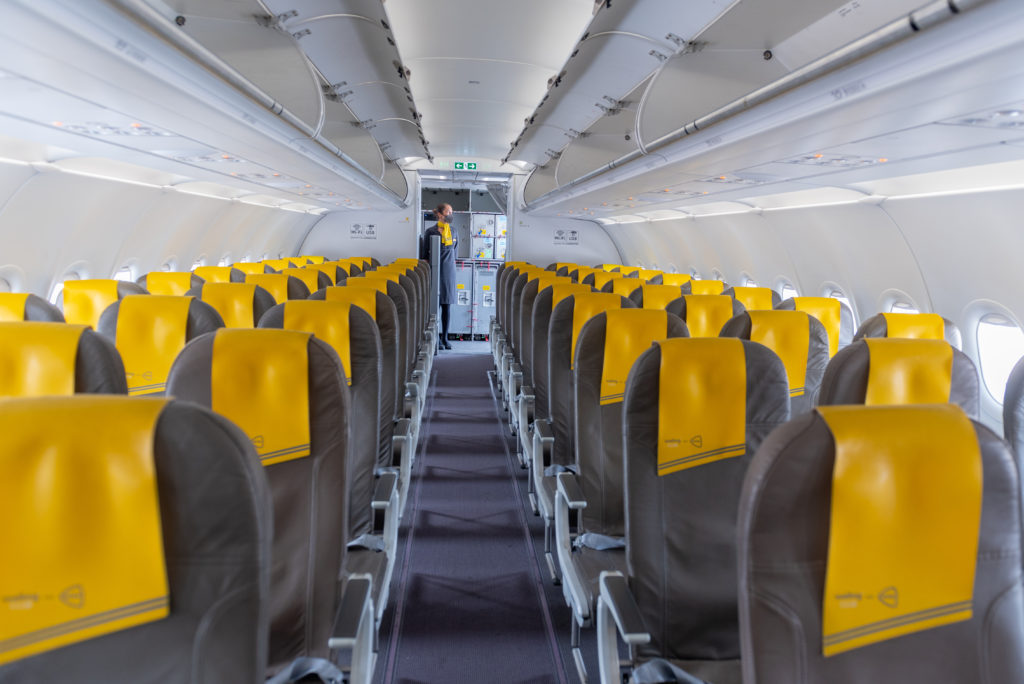
The Spanish low-cost airline Vueling was forced to leave 50 passengers behind during a recent flight from Granada, in the Andalusia region of southern Spain, to Barcelona after two cabin crew went sick and the airline struggled to find replacement flight attendants to take over their duties.
The Barcelona-based airline explained that it operates flights to Granada as a so-called ‘turnaround’ with cabin crew and pilots remaining onboard the plane to fly straight back to Barcelona.

Vueling doesn’t have a cabin crew base in Granada, so when the two flight attendants both went sick during the outbound flight, the airline didn’t have anyone local they could call to fill their shoes.
So why did the airline have to leave 50 passengers in Granada? Minimum cabin crew levels in Spain are overseen by the European Air Safety Agency (EASA), and in the case of the Airbus A320 used by Vueling on this flight, there normally has to have a minimum of four cabin crew.
With two crew members down, there was no legal way for Vueling to operate the return flight. There was, however, one possible solution and Vueling managed to find a spare cabin crew member in Malaga who they flew out to Granada on a scheduled flight.
EASA allows airlines to operate the A320 with a reduced crew of three flight attendants in unforeseen circumstances (like crew sickness) in order to get the plane back to base, but the number of passengers onboard has to be reduced.
On Tuesday, passengers on Vueling flight VY2017 discovered that 50 of them would have to be left in Granada to comply with EASA’s minimum crew level regulations.
Although frustrating, this kind of situation is probably more common than they might realise. This is especially true on short-haul flights where airlines rarely roster more than the minimum number of required cabin crew.
This isn’t an issue when operating from an airline’s home base as air carriers aren’t legally allowed to reduce the standard minimum crew number, but it’s not unknown for it to happen on flights returning to base.
In some cases, airlines have enough time to ‘deadhead’ a flight attendant out to join the flight, although, like in Tuesday’s case, that’s not always possible.
So are passengers eligible for compensation under Europe’s EC261 regulations should they get booted from a flight due to crew sickness? The short answer is most probably yes. Airlines should expect crew to go sick from time to time, and European courts have established that this type of situation is not classed as an ‘extraordinary circumstance’.
Mateusz Maszczynski honed his skills as an international flight attendant at the most prominent airline in the Middle East and has been flying ever since... most recently for a well known European airline. Matt is passionate about the aviation industry and has become an expert in passenger experience and human-centric stories. Always keeping an ear close to the ground, Matt's industry insights, analysis and news coverage is frequently relied upon by some of the biggest names in journalism.







